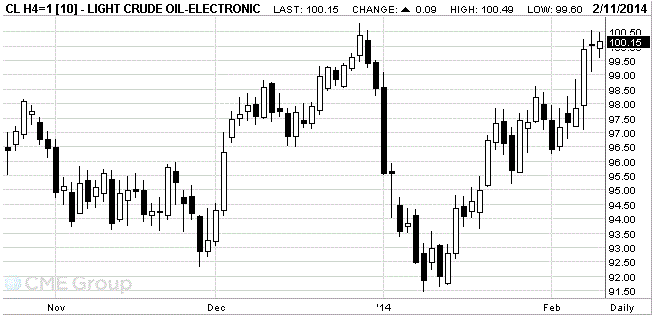- Oil: an overview of the market situation
Market news
Oil: an overview of the market situation
Prices for Brent crude moderately increased , being in the neighborhood of $ 109 per barrel, while WTI oil prices exceeded the $ 100 a barrel as investors analyzed the comments of the Federal Reserve System Janet Yellen that the U.S. central bank will continue to reduce program asset purchase .
In his first public comments as Fed chief Yellen also said that the recent volatility in global financial markets does not pose a significant risk to the U.S. economic outlook .
"Yellen has clearly stated that it plans to continue to reduce incentives - said the chief market analyst at Price Futures Group Phil Flynn . - Investors are hoping that she is inclined to support incentives but Yellen destroyed these hopes . "
Note that the series of disappointing U.S. data prompted speculation that the Fed may refrain from further reduce the incentives that supported prices for oil and other commodities .
U.S. crude still close to six-week high , supported by expectations that the fall in distillate stocks for the previous week due to cold weather across the country. Stocks of distillates , including heating oil and diesel, are expected to have decreased by 2.3 million barrels for the week ending February 7. Oil reserves, however, are expected to rise by 3 million barrels. Recall that today will present data on stocks of the American Petroleum Institute , and tomorrow - the Energy Information Administration .
We add that the rise in prices for Brent was limited expectations of a further increase in Libyan production . Current production in the North African country is about 600,000 barrels per day , which is slightly above the average , which was celebrated in January.
March futures price for U.S. light crude oil WTI (Light Sweet Crude Oil) rose to $ 100.15 per barrel on the New York Mercantile Exchange (NYMEX).
March futures price for North Sea Brent crude oil mixture rose 62 cents to $ 109.03 a barrel on the London exchange ICE Futures Europe.
